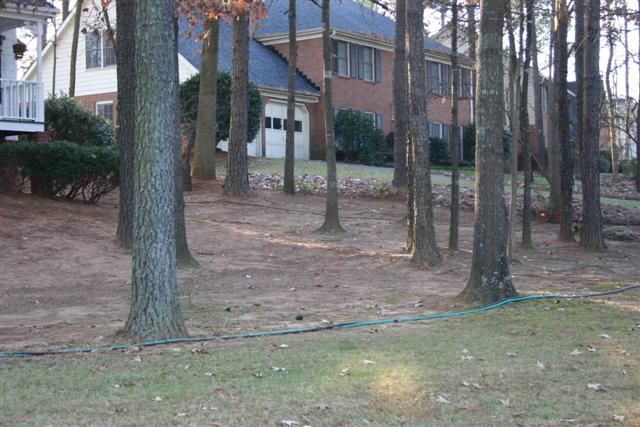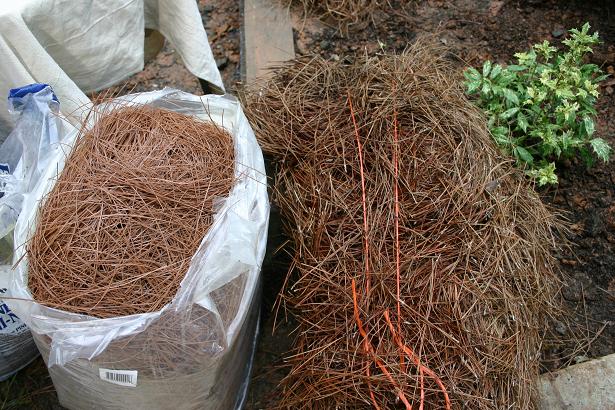
Check out our Services.
| Mulch in the Garden (Updated and Revised from June 29, 2006) |

|
Need help? Check out our Services. |
| Mulch near a tree |

| Pinestraw: | 3 inches (apply 6 inches to allow for settling) |
| Shredded Hardwood or Pine: | 2-3 inches |
| Nature's HelperŪ: | 1.5-2 inches |
| Freshly Shredded Leaves: | 3 inches |
| Compost: | 1.5-2 inches |
| Rock: | Not recommended due to heat retention |
